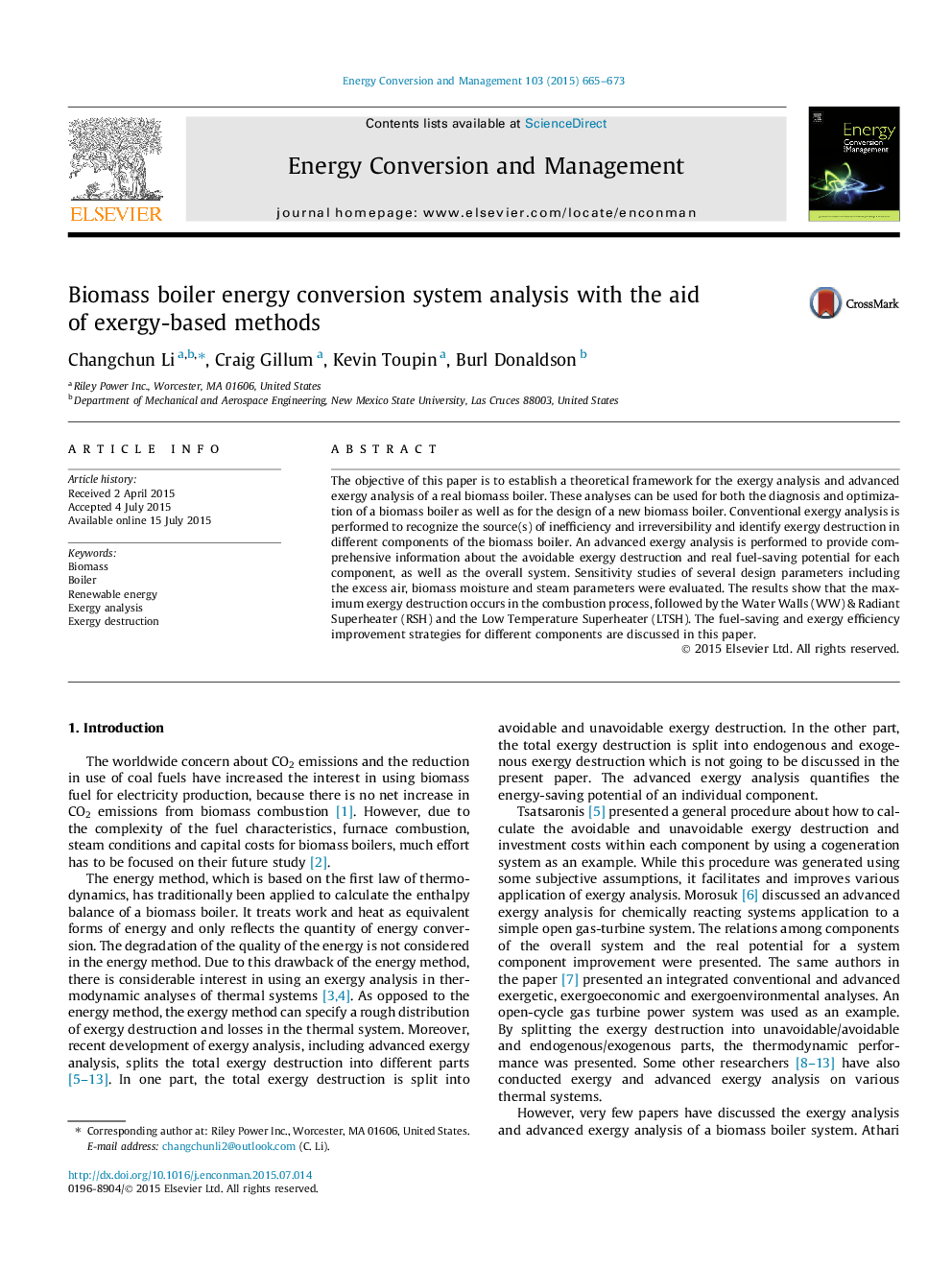| Article ID | Journal | Published Year | Pages | File Type |
|---|---|---|---|---|
| 771712 | Energy Conversion and Management | 2015 | 9 Pages |
•Conventional exergy analysis and advanced exergy analysis are performed.•The combustion process dominates the exergy destruction.•Increase excess air will decrease the overall boiler exergy efficiency.•Increase the SH temperatures will increase the overall boiler exergy efficiency.•The avoidable exergy destructions in the air heaters are very small.
The objective of this paper is to establish a theoretical framework for the exergy analysis and advanced exergy analysis of a real biomass boiler. These analyses can be used for both the diagnosis and optimization of a biomass boiler as well as for the design of a new biomass boiler. Conventional exergy analysis is performed to recognize the source(s) of inefficiency and irreversibility and identify exergy destruction in different components of the biomass boiler. An advanced exergy analysis is performed to provide comprehensive information about the avoidable exergy destruction and real fuel-saving potential for each component, as well as the overall system. Sensitivity studies of several design parameters including the excess air, biomass moisture and steam parameters were evaluated. The results show that the maximum exergy destruction occurs in the combustion process, followed by the Water Walls (WW) & Radiant Superheater (RSH) and the Low Temperature Superheater (LTSH). The fuel-saving and exergy efficiency improvement strategies for different components are discussed in this paper.
